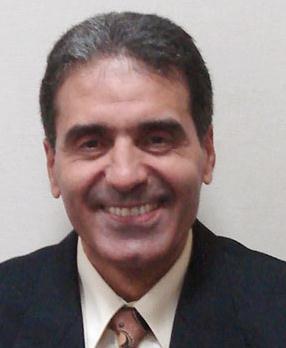SAGE Record 079, Belhaj
Belhaj, H., 2022, Energy transition: Hydrogen fuel intrusion and CCS role!: SAGE Record 079, 1 p., <http://sagetech.org/sage_record_079_belhaj/>. Keynote oral presentation at SAGE/ESSL BIGEC 2022, 30 Aug.–01 Sept. 2022, Benghazi, Libya, and Online.
KEYNOTE PRESENTATION: Energy Transition: Hydrogen Fuel Intrusion and CCS Role!
Hadi Belhaj (Khalifa University of Science and Technology, Abu Dhabi, United Arab Emirates)

The petroleum industry has faced many challenges over the past two centuries and has survived a very bumpy road to becoming the undisputed top world energy supply. Nevertheless, hydrogen energy is speculated to take the lead in being the greenest and most affordable energy resource. In order to survive the current and future challenges, the oil industry must reform itself and go through what we call the “Energy Transition.” Hydrogen fuel cells became part of the global energy equation in recent years. As governments throughout the world strive to reduce their carbon emissions, repurpose old infrastructure, and phase out internal combustion engines, interest is only growing. According to the International Energy Association study in June 2019, clean hydrogen energy is presently seizing unprecedented political and corporate momentum, and the number of global regulations and projects in this domain is rapidly rising. What is left is developing this technology to implementation with reasonable cost. The initial interest in hydrogen as an alternative energy source came in the shadow of the oil crisis of the 1970s as the world experienced one of the most energy crunches of modern history. During the years from 2004 to 2008, 1.2 billion US dollars were spent on hydrogen technology in the US alone, with 720 million of those dollars going toward R&D. The US Department of Energy has provided this initiative with $120 million per year in previous years. Similar systems are already in place in more than 20 nations across the world. Hence, it is important to think about what’s driving the current global push for hydrogen energy and why so many people see the hydrogen economy as the realization of a long-term environmental goal. More importantly, what would be the role of the traditional petroleum industry in such hydrogen hype knowing that the most reliable source of hydrogen is fossil fuels; ex: HC gas, coal, etc.? Can fossil fuel survive the energy transition age by resourcing clean hydrogen and incorporating carbon capture and storage (CCS)? The world net zero CO2 emission is set at 2050, anyway! A thorough discussion on all these legitimate concerns shaping the future of the petroleum industry is deliberated.
BIOGRAPHY: Dr. Hadi A. Belhaj is a petroleum engineering faculty member at Khalifa University (KU), Abu Dhabi, UAE, teaching various graduate and undergraduate courses ranging from reservoir engineering to unconventional reservoir characterization and modeling to drilling engineering to petroleum economics and risk analysis to hydrogen resourcing, storage, and recovery to CCS. Dr. Belhaj has over 40 years of combined industrial and academic experience with key qualifications and research achievements in reservoir engineering, reservoir simulation, modeling fractured reservoirs, EOR, reservoir stimulation, sand production, unconventional reservoirs, and decarbonized fossil fuels. Geographically, his experience is spread over North America, Europe, North Africa, Asia, and the Middle East. Prior to KU/PI merging, Dr. Belhaj was engaged with the Petroleum Institute, Texas Tech University, and Dalhousie University, respectively. From 1982 until 2000, Dr. Belhaj worked with Schlumberger and the Libyan National Oil Corporation (LNOC), respectively. Dr. Belhaj is a Distinguished Member of the Society of Petroleum Engineers (SPE). Dr. Belhaj also is the recipient of 2013/2020 SPE Regional Distinguished Achievement for Petroleum Engineering Faculty Award and the 2019 SPE Regional Reservoir Description and Dynamics Award. He is currently a member of the Journal of Petroleum Technology Editorial Committee and SPE-ATCE Technical Program Subcommittee and has served on numerous other SPE and none SPE educational, research, and judging-related committees as well as conference/workshop/forum programming and organizing committees. Dr. Belhaj has contributed a number of consortium research proposals dealing with petroleum engineering and energy exploitation challenges generating more than 17 million dollars of research grants. Dr. Belhaj published more than 130 refereed journal and conference articles and signed a contract with Elsevier Publishing to write a series of seven-volume-book on the characterization and modeling of unconventional reservoirs, the first volume on tight oil UCRs is due by end of 2022. Dr. Belhaj is a member of other professional societies and organizations around the globe; the Society of Special Core Analysts (SCA), the International Society for Porous Media, and the OMAEASME are among them. Dr. Belhaj currently serves as the Associate Editor for both the Journal of Petroleum Exploration and Production and the Petroleum Science and Technology Journal.

